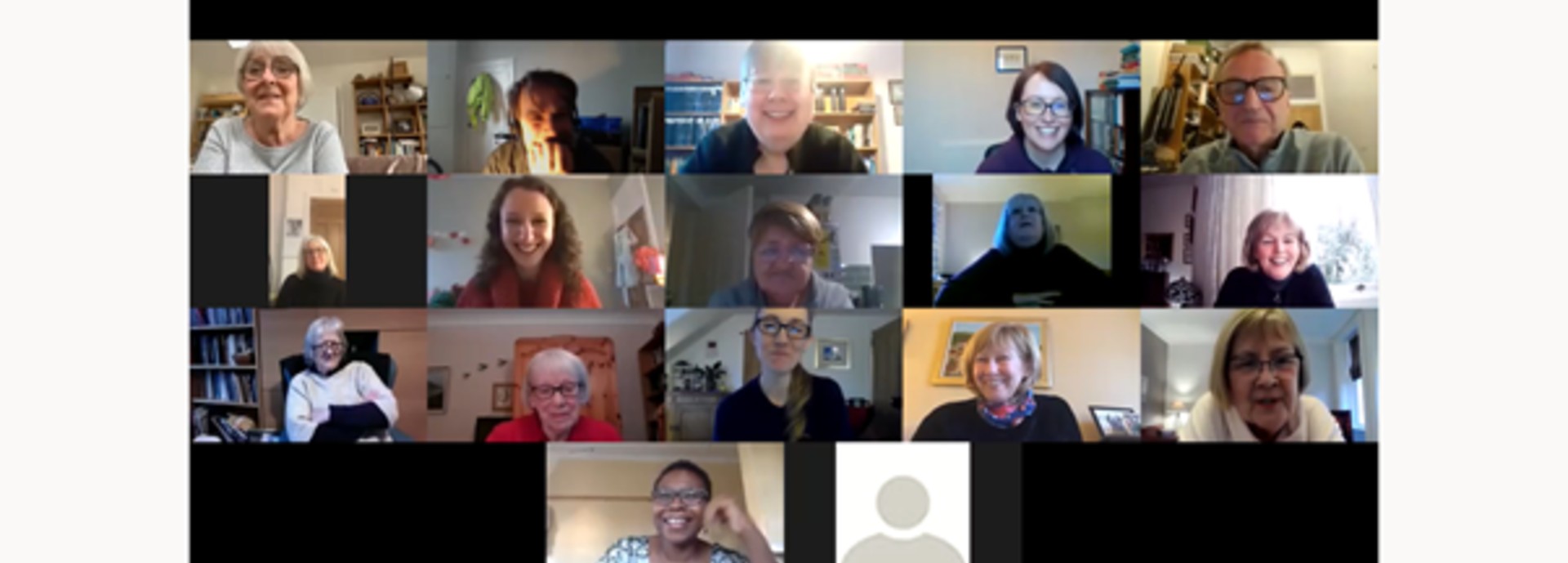A new interactive theatre performance challenging the stigma and stereotypes associated with older age opens next month, as part of a major research project.
Led by Dr Melanie Lovatt, a sociologist at the University of Stirling, the production ‘Reimagining the Future’ has been developed over the last three months by a group of participants in partnership with Edinburgh-based theatre company, Active Inquiry.
Hosted online due to COVID restrictions, the performance takes the form of Forum Theatre – a genre encouraging audience participation – and features two mini-plays telling the stories of two protagonists who are experiencing ageism. The audience is encouraged to step in and edit the stories in order to help remove the barriers the characters face.

Lecturer in Sociology
It really matters that we get away from this attitude that older people just need their basic needs met, they should have their aspirations and wants met too.
Dr Lovatt, who is based in the University’s Faculty of Social Sciences, said: “I wanted to challenge the limited and oppressive narratives that are associated with older age. Older people are often linked to words like decline and dependency – very depressing and negative terms.
“There are also few diverse, cultural representations of later life in popular culture and I wanted to allow older people, or those who identify as being older, to use their imagination and desires to create their own stories about what they want to do in their future.”
The performances, taking place 10 - 12 June, have been developed, improvised and rehearsed over Zoom. Each performance will end with a discussion on how it has impacted the audience’s perceptions, and the experience of both the cast and audience will be captured and used to feed into Dr Lovatt’s research.
“The pandemic has unfortunately further reinforced negative stereotypes of older people,” Dr Lovatt added. “During rehearsals, one participant shared her experience of turning 70 in the first lockdown, and because of the way the ‘over 70s’ were being spoken about in this context – that they were vulnerable, frailer than the rest of society, and should stay indoors, for example – she felt as if she had had this personality ascribed to her that she couldn’t relate to and that felt very limiting and alienating.
“It really matters that we get away from this attitude that older people just need their basic needs met, they should have their aspirations and wants met too. We are all living longer and we will all have a longer period in ‘older age’ than previously, our plans and ambitions for the future should not stop in our thirties or forties.”
Gavin Crichton, Artistic Director of Active Inquiry, said: “Theatre is a really useful tool to explore societal issues like ageism, which can be a difficult concept to pin down.
“But by using Forum Theatre, which allows the audience to stop the action and change a play and its outcome, we can explore what ageism looks like, how it occurs in day-to-day life, and enable an audience to tackle the wider questions about future and older age.”
Funded by the Economic and Social Research Council, Dr Lovatt is working on the wider research project ‘Reimagining the Future in Older Age’ alongside her Stirling colleague Dr Valerie Wright. The study explores the relationship between older age and the future and will provide practical guidance for policymakers.
Reimagining the Future is available to watch online on 10 June (2.30pm-4.30pm), 11 June (10am-12pm) and 12 June (5pm – 7pm).

